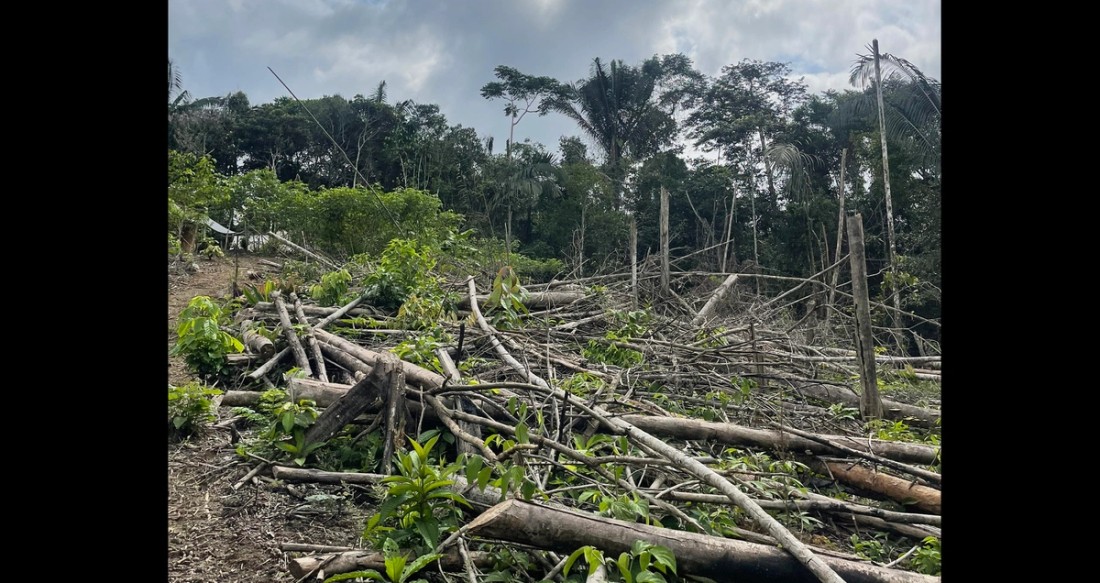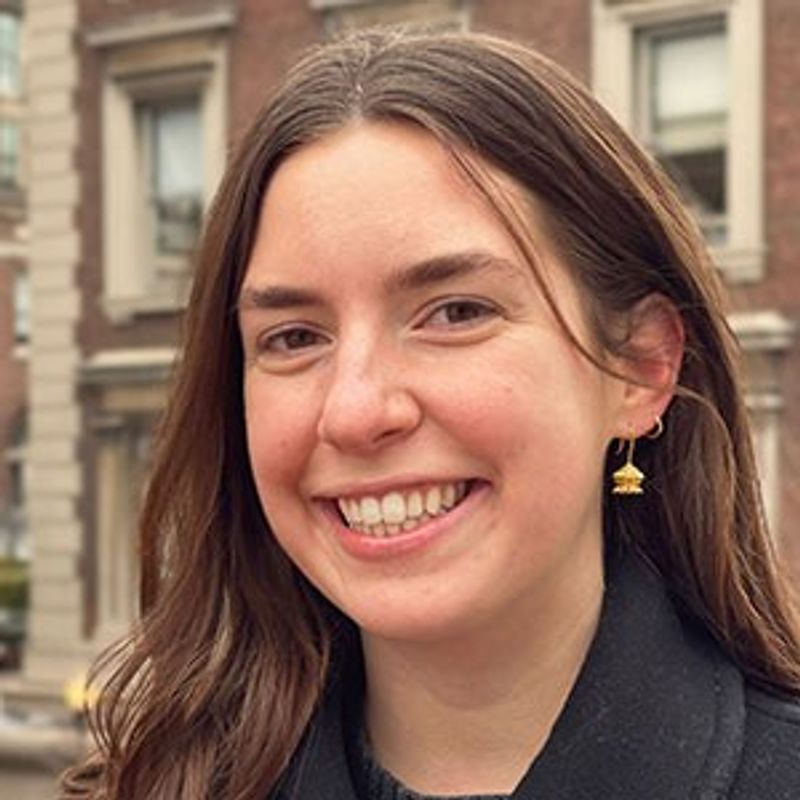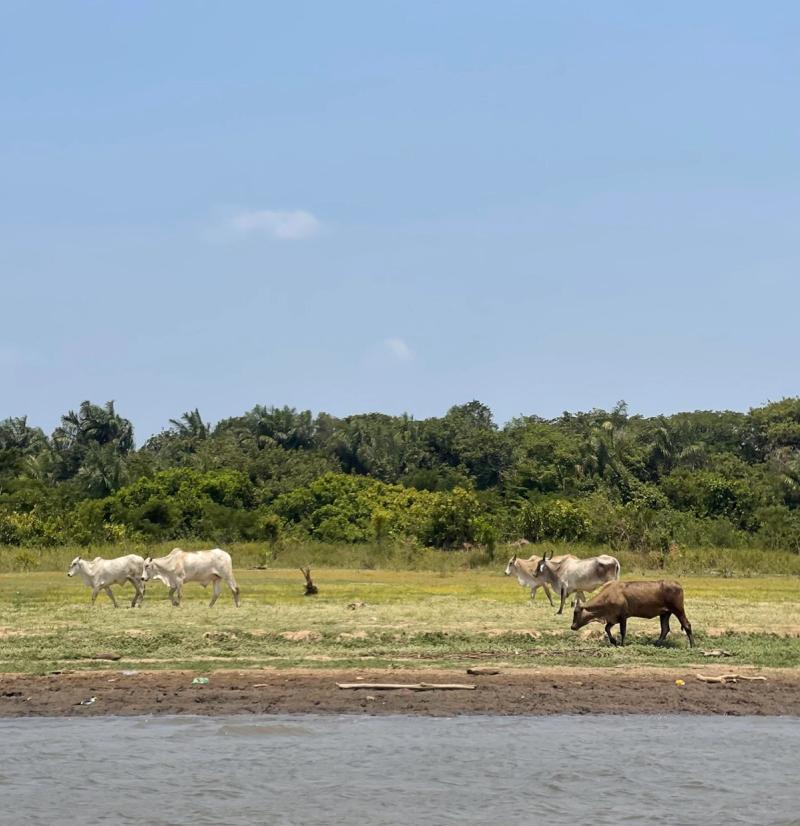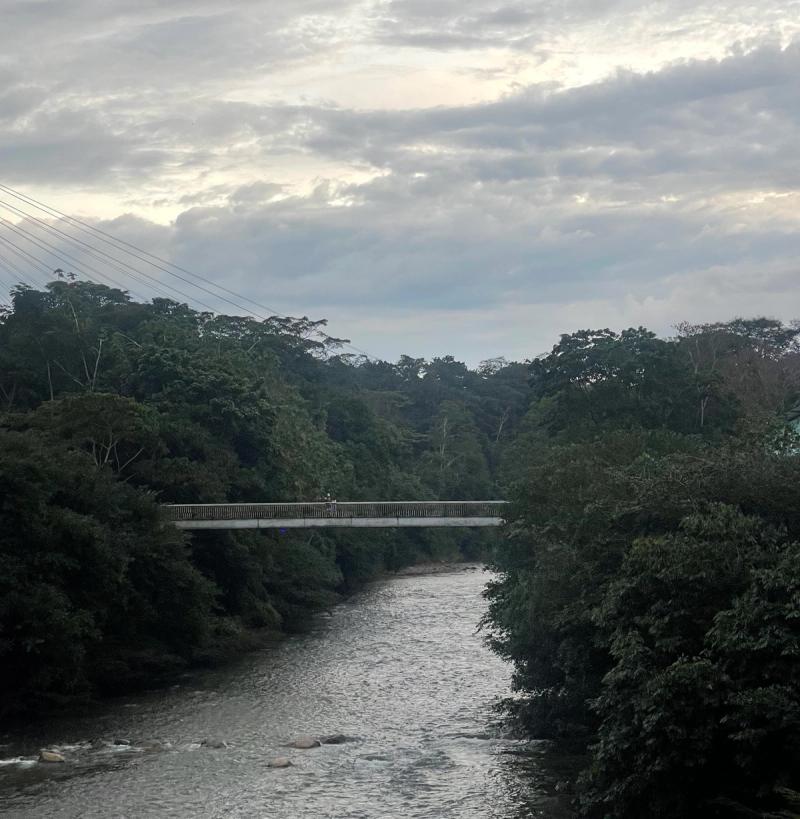From Paris to the Amazon: A Political Scientist’s Quest to Protect the Forest

One Center for Political Economy grantee goes to South America to research how battles between agricultural interests and environmental advocates affect how governments protect the Amazon.
Standing in the middle of what was once dense rainforest, Ella Bayi saw endless rows of soybeans stretching to the horizon. Trucks rumbled past, hauling crops to export terminals and leaving a haze of dust and exhaust that made it hard to breathe. For Bayi, a Political Science doctoral candidate at Columbia’s Graduate School of Arts and Sciences, it was a devastating sight.
"The Amazon is the most important biome on this planet," she says. “If we do not preserve it, there’s no hope of mitigating global climate change.”
Roots in Nature
Bayi’s connection to the natural world began in Paris, where she grew up in a Franco-American family. Her mother, a painter, turned family hikes into lessons on tree species, later depicted in artwork around their home. Summers on her aunt’s Wyoming ranch deepened her sense of land stewardship and responsibility.
Her first exposure to the Amazon came during a month-long study abroad program while at UC San Diego. Traveling through Ecuador, she studied indigenous rights and environmental protection, witnessing oil spills and illegal mining firsthand. Most importantly, she met indigenous communities leading conservation efforts. “I saw how they were the ones doing much of the work to protect the Amazon for the rest of the world,” she explains. That experience shaped her undergraduate thesis, which demonstrated that "when you protect indigenous people's rights and protect their territorial rights, deforestation in those areas decreases by a huge amount."

Research with Global Stakes
Now, supported by a Fulbright fellowship and a graduate student grant from Columbia World Project’s Center for Political Economy (CPE), Bayi has spent nine months conducting fieldwork across Brazil, Ecuador, and Bolivia. She was one of 30 Columbia graduate students selected for the 2025 CPE grant competition, which funds dissertation research that connects economics, politics, and urgent global challenges.
Her dissertation examines how political conflicts between agricultural interests and environmental advocates determine whether protective institutions are strengthened or dismantled. The stakes are enormous. Over the past 50 years, nearly one-fifth of the Amazon — an area larger than California — has been destroyed. In 2024 alone, fires consumed five times more forest than the year before. Once a vast carbon sink, parts of the Amazon now emit over a billion tons of CO₂ annually instead of absorbing it. Scientists warn that if the carbon still stored in the forest is released, global temperatures could rise by a quarter of a degree — pushing the planet perilously close to a tipping point.

The System Behind the Destruction
Through interviews with forestry officials, indigenous leaders, and local farmers, Bayi has traced how soybean cultivation and cattle ranching fuel a destructive cycle. Soy exhausts soil so quickly that farmers must constantly clear new forest to keep planting; the degraded land is then converted to pasture for cattle. “Bolivia exports all of its soy to feed cattle in Colombia, Brazil, and Argentina,” she notes.
Her research frames this as a “distributional conflict” — a battle between large agricultural interests with political power on one side and local communities, indigenous groups, and essentially the world on the other, since Amazon destruction destabilizes the climate for everyone.
Signs of Hope
Despite grim statistics, Bayi’s findings suggest pathways forward. She has documented that strong, independent bureaucracies — when insulated from political interference and supported by international funding — can be effective protectors of the forest. In Brazil, for example, farmers once feared enforcement by the country’s environmental agency, which kept deforestation rates in check until its autonomy and resources were eroded. Such institutions, often under pressure and underfunded, become critical bulwarks when given the independence and support they need. Projections suggest the Amazon could lose another 23.7 million hectares by 2025, an area almost as large as the United Kingdom. But Bayi’s research demonstrates that outcomes are not inevitable: policies that empower environmental institutions and respect indigenous rights can shift the trajectory.

About the Center for Political Economy at Columbia University
The Center for Political Economy (CPE), part of Columbia World Projects, is reimagining the relationship between markets, governments, and people. It supports research that challenges orthodoxies and equips scholars to interrogate capitalism’s structures, logics, and impacts across time and place. By fostering collaboration across disciplines — from history and law to economics and political science — CPE is building the intellectual foundations for a more democratic and equitable political economy.
In 2025, CPE awarded its second cohort of Graduate Student Grants to 30 Columbia doctoral students working on urgent questions in political economy, from climate risk and global supply chains to misinformation and financialization. These one-year grants support archival research, fieldwork, data analysis, and academic convenings—expanding the space for bold, rigorous, and interdisciplinary scholarship on the systems that shape economic life.